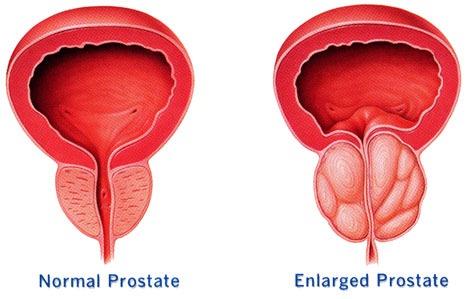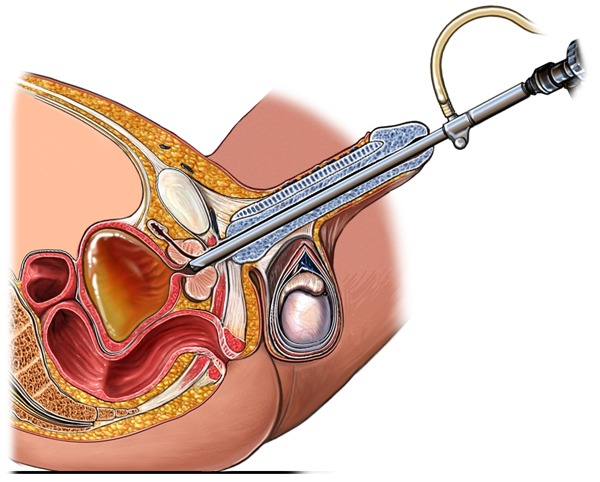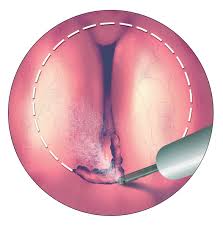Enlarged Prostate (BPH)
- Home
- Enlarged Prostate (BPH)
BPH (ENLARGED PROSTATE) HOSPITAL - CAUSES, SYMPTOMS, TREATMENT & SURGERY

Benign prostatic hyperplasia (BPH) — also called prostate gland enlargement — is a common condition as men get older. An enlarged prostate gland can cause uncomfortable urinary symptoms, such as blocking the flow of urine out of the bladder. It can also cause bladder, urinary tract or kidney problems.
There are several effective treatments for prostate gland enlargement, including medications, minimally invasive therapies and surgery. To choose the best option, you and your doctor will consider your symptoms, the size of your prostate, other health conditions you might have and your preferences.
CAUSES :-
The prostate gland is located beneath your bladder. The tube that transports urine from the bladder out of your penis (urethra) passes through the center of the prostate. When the prostate enlarges, it begins to block urine flow.
Most men have continued prostate growth throughout life. In many men, this continued growth enlarges the prostate enough to cause urinary symptoms or to significantly block urine flow.
It isn’t entirely clear what causes the prostate to enlarge. However, it might be due to changes in the balance of sex hormones as men grow older.
Symptoms
The severity of symptoms in people who have prostate gland enlargement varies, but symptoms tend to gradually worsen over time. Common signs and symptoms of BPH include:
- Frequent or urgent need to urinate
- Increased frequency of urination at night (nocturia)
- Difficulty starting urination
- Weak urine stream or a stream that stops and starts
- Dribbling at the end of urination
Less common signs and symptoms include:
- Urinary tract infection
- Inability to urinate
- Blood in the urine
The size of your prostate doesn’t necessarily determine the severity of your symptoms. Some men with only slightly enlarged prostates can have significant symptoms, while other men with very enlarged prostates can have only minor urinary symptoms.
Risk factors
Risk factors for prostate gland enlargement include:
- Aging: Prostate gland enlargement rarely causes signs and symptoms in men younger than age 40. About one-third of men experience moderate to severe symptoms by age 60, and about half do so by age 80.
- Family history: Having a blood relative, such as a father or a brother, with prostate problems means you’re more likely to have problems.
- Diabetes and heart disease: Studies show that diabetes, as well as heart disease and use of beta blockers, might increase the risk of BPH.
- Lifestyle: Obesity increases the risk of BPH, while exercise can lower your risk.
BPH (Enlarged Prostate) Diagnosis :
The doctor will try to know your family history and other aspects of your physical condition. He may ask you questions directly about your condition or you may be required to fill a survey form, which will have questions pertaining to urination and other aspects of the condition.
The doctor will also try to examine the shape and size of your prostate gland through the digital rectal examination. During the examination, he will wear the gloves and insert a finger gently into the rectum area for the examination.
Prostate Specific Antigen or PSA test, blood test, and urine test are also carried out. Apart from detecting the condition of the prostate, these tests also aim to find out the presence of any infection or adverse impact on the kidney.
Advanced tests including ultrasound, biopsy (for ruling out the presence of cancer), and urodynamics test (for evaluating the functioning of the bladder) :
BPH (Enlarged Prostate) Treatment :
The severity of symptoms of BPH, shape, and size of the prostate / other organs, the age of the patient, overall health and other aspects are carefully evaluated to decide the best course of treatment. Some patients have very mild symptoms so that they do not bother much and these patients may wait a while and see how it actually goes.
For very mild symptoms, lifestyle changes may be adequate in some cases. Patients are advised certain exercises that can strengthen the muscles of the pelvic floor area. They should also drink and consume less alcohol and caffeine and should avoid fluids at the time they go to sleep.
Medicines can be used for treating the moderate to mild prostate enlargement condition. The medications can directly shrink the prostate so that it assumes a more normal size. Some medications also relax the bladder and the urethra so that urination is more comfortable.
When medications and lifestyle changes do not work, surgery is the only resort available to the physician. The new minimally invasive surgical procedures ensure that no large cuts are made to the body, and these can be carried out through probes and scopes

Use of cold and heat for killing excess prostate cells and tissues. A catheter is entered inside the prostate and has instruments for generating and delivering microwave heat/energy.
A Cystoscope (a surgical and visual instrument is inserted via the penis into the urethra. Tiny radio-frequency (RF) needles are also passed through the Cystoscope and these deliver heat and cause necrosis, thereby shrinking the prostate issues.
Procedures including Laser Therapy and TransUrethral Resection of Prostate (TURP) are more involved surgical procedures and are carried out to remove a part of the prostate gland.
A scope is inserted via the penis tip into the urethra. As the urethra is surrounded by the prostate gland, the heat/energy (passed through the scope subsequently) cuts the excessive tissues of the prostate or melts them.
The method involves making some small incision on the prostate so that the pressure on urethra can be released.
Open surgery for enlarged prostate (or open prostatectomy) is usually carried out if the prostate is excessively large, or when TURP cannot be done because of some reason. It may also be carried out if bladder stones are there, or the bladder wall has pouches (bladder diverticula).

Thulep treatment
Surgery for treating BPH may also have certain complications and side effects. Erectile dysfunction, incontinence, stricture/ narrowing of the urinary tube, and bleeding may be some of the side effects of a surgery. While some of the conditions may heal themselves naturally, others may require medical intervention.
A number of treatment methods are available for the treatment of the disease BPH. But it is important for the patient to reach out to the doctor early so that the symptoms do not aggravate and worsen over a period of time and cause damage to other vital organs of the body. A prompt medical intervention will avoid the complications and may improve the condition easily.
Complications :-
Complications of an enlarged prostate can include:
You might need to have a tube (catheter) inserted into your bladder to drain the urine. Some men with an enlarged prostate need surgery to relieve urinary retention.
Inability to fully empty the bladder can increase the risk of infection in your urinary tract. If UTIs occur frequently, you might need surgery to remove part of the prostate.
These are generally caused by an inability to completely empty the bladder. Bladder stones can cause infection, bladder irritation, blood in the urine and obstruction of urine flow.
A bladder that hasn’t emptied completely can stretch and weaken over time. As a result, the muscular wall of the bladder no longer contracts properly, making it harder to fully empty your bladder.
Pressure in the bladder from urinary retention can directly damage the kidneys or allow bladder infections to reach the kidneys.
Most men with an enlarged prostate don’t develop these complications. However, acute urinary retention and kidney damage can be serious health threats. Having an enlarged prostate is not believed to increase your risk of developing prostate cancer.